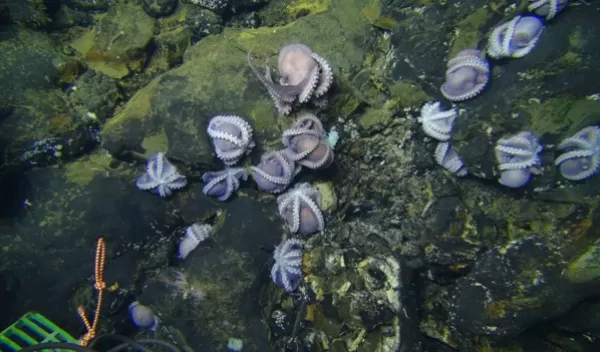
Study weighs deep-sea mining's impact on microbes
The essential roles microbes play in deep-sea ecosystems are at risk from the potential environmental impacts of mining, a new paper in Limnology and Oceanography reports. The NSF-funded study reviews what is known about microbes in these environments and assesses how mining could impact their important roles.
"The push for deep-sea mining has accelerated in the last few years, and it is crucial that policy makers and the industry understand these microbes and the services they provide," said Beth Orcutt, a senior research scientist at the Bigelow Laboratory for Ocean Sciences and lead author of the study. "This paper establishes what we know and suggests next steps for using the best science to evaluate the impacts of this new human activity in the deep sea."
Microbes across the seafloor are responsible for essential ecosystem services, from fueling the food web to powering global nutrient cycles. Environments that are promising for mining are also often the sites of globally-important microbial processes and unusual animal communities –- and are slow to recover from disturbance, scientists have found.
Orcutt and co-authors analyzed four types of deep-sea mineral resources, including the metal-rich rocks that stud underwater mountains and lie on the seafloor. Their findings indicate that the likely impacts of mining on microbial ecosystems vary substantially, from minimal disturbance to the irreversible loss of important ecosystem processes.
"These microbes have incredible potential to inspire new solutions to the medical and technological challenges we face today," said Julie Huber, a scientist at the Woods Hole Oceanographic Institution and co-author of the new study. "But if we damage or destroy a habitat like a hydrothermal vent, we lose the diverse the pool of microbial genetic information from which we can potentially find new enzymes or drugs."
Added Mike Sieracki, a program director in NSF's Division of Ocean Sciences, "We know very little about the deep ocean ecosystems we are preparing to exploit. That makes this review of the state of knowledge so important."


